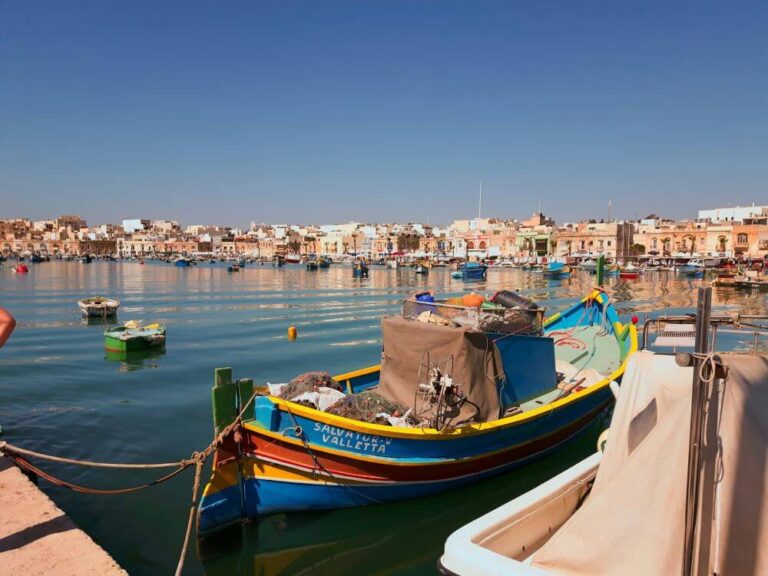Residency by investment programs in Malta and Cyprus offer unique advantages to global investors. Both countries provide a gateway to the European lifestyle, travel benefits, and opportunities for wealth management.
Albert Ioffe, Legal and Compliance Officer at Immigrant Invest, explains the main features of Malta and Cyprus Permanent Residence, comparing their benefits, costs, and processes to help investors make an informed choice.
Malta Permanent Residence Program Details
Malta Permanent Residence Programme allows high-net-worth individuals to gain residency in Malta through investment. It offers a robust set of benefits, including visa-free Schengen travel and a favourable tax environment.
Investment requirements. Applicants must meet these criteria:
- Rent real estate for at least €14,000 per annum or buy a property for at least €375,000 for a property situated in Malta or Gozo.
- Application administrative fee. Investors pay €15,000 as an initial payment and €35,000 at the final stage, regardless of whether they choose to buy or rent property.
- Government contribution. Investors must make a one-time, non-refundable contribution of €30,000 to the government if purchasing property, or €60,000 if renting.
- Donation to a non-governmental organisation. An additional donation of €2,000 is required to a local NGO. This donation contributes to social projects in Malta.
- Proof of funds. Applicants need to demonstrate assets worth at least €500,000, with €150,000 in liquid financial assets. This ensures that applicants have sufficient financial stability to support themselves and their families.
Benefits of Malta PR:
- Schengen visa access. Travel freely within the Schengen Area;
- family inclusivity. Dependents, including spouse, elderly parents and children, can be included in the application.
What is Cyprus Permanent Residence
The Cyprus Permanent Residence Programme is designed for non-EU nationals who invest in the country. Investors and their families gain access to a stable, low-tax environment in the Mediterranean with long-term residency rights.
Investment requirements. To qualify for Cyprus PR, applicants must invest at least €300,000 in real estate or certain financial assets. The program also requires maintaining a bank deposit in Cyprus and providing proof of a stable annual income from abroad.
Benefits of Cyprus permanent residency for investors:
- Residency for the entire family. Spouses, children, and dependent parents can also qualify under the program;
- No renewal required. Permanent residency is granted for life, provided applicants meet the initial requirements;
- Access to EU markets. Cyprus PR holders can conduct business in Cyprus and travel across the Schengen Area once the country finalises its Schengen membership.
Malta vs. Cyprus Residence Comparison
Cost differences. Malta’s program has a higher entry-level cost but includes more travel and tax advantages. Cyprus offers lower property investment requirements, making it more accessible for smaller portfolios.
Taxation benefits. Malta’s residency program is more appealing for investors with international income due to its tax regime, while Cyprus offers a corporate tax rate of 12.5%, ideal for business owners.
Lifestyle and location. Malta’s small size and proximity to Italy make it ideal for investors seeking a central European hub. Cyprus, with its larger land area and growing business infrastructure, appeals to those focused on real estate and business opportunities.
Visa-free travel. Malta provides Schengen travel benefits. Cyprus’s Schengen membership is pending, making Malta the better choice for immediate travel access.
Family provisions. Both programs accommodate family members.
How to Apply for Malta PR
Detailed process for Malta PR:
- Engage a licensed agent. Maltese law requires applicants to use an authorised agent to submit their application. Choose a reputable firm to guide you through the process.
- Prepare and submit the application. Collect required documents, including proof of income, health insurance, a clean criminal record certificate, and evidence of investment funds.
- Make the required investments, including government contribution, real estate investment and charitable donation.
- Maintain financial stability. Show proof of €650,000 in capital assets, of which €75,000 must be in liquid financial instruments, such as stocks, bonds, or bank deposits.
- Health insurance coverage. Obtain valid health insurance that covers the entire family for at least €30,000 annually.
- Due Diligence checks. Undergo a rigorous background check by Maltese authorities. This process ensures applicants are credible and meet all legal requirements.
- Final approval and residency card issuance. Once your application is approved (within four to six months), complete the real estate purchase or rental agreement. Visit Malta to submit biometrics and collect residency cards for you and your family.
Conclusion
Malta and Cyprus both provide compelling residency options for global investors. Malta stands out for its immediate Schengen access and tax benefits, while Cyprus offers a lower investment threshold and permanent residency with no renewal requirements. Choosing the right program depends on investment priorities and lifestyle preferences.


